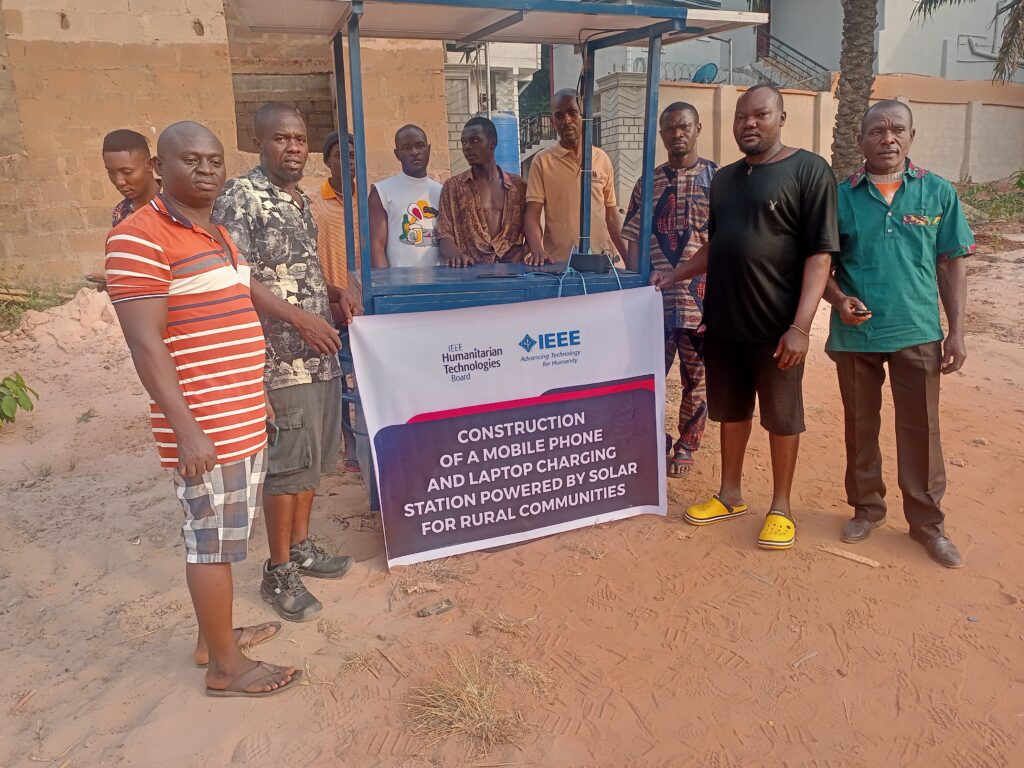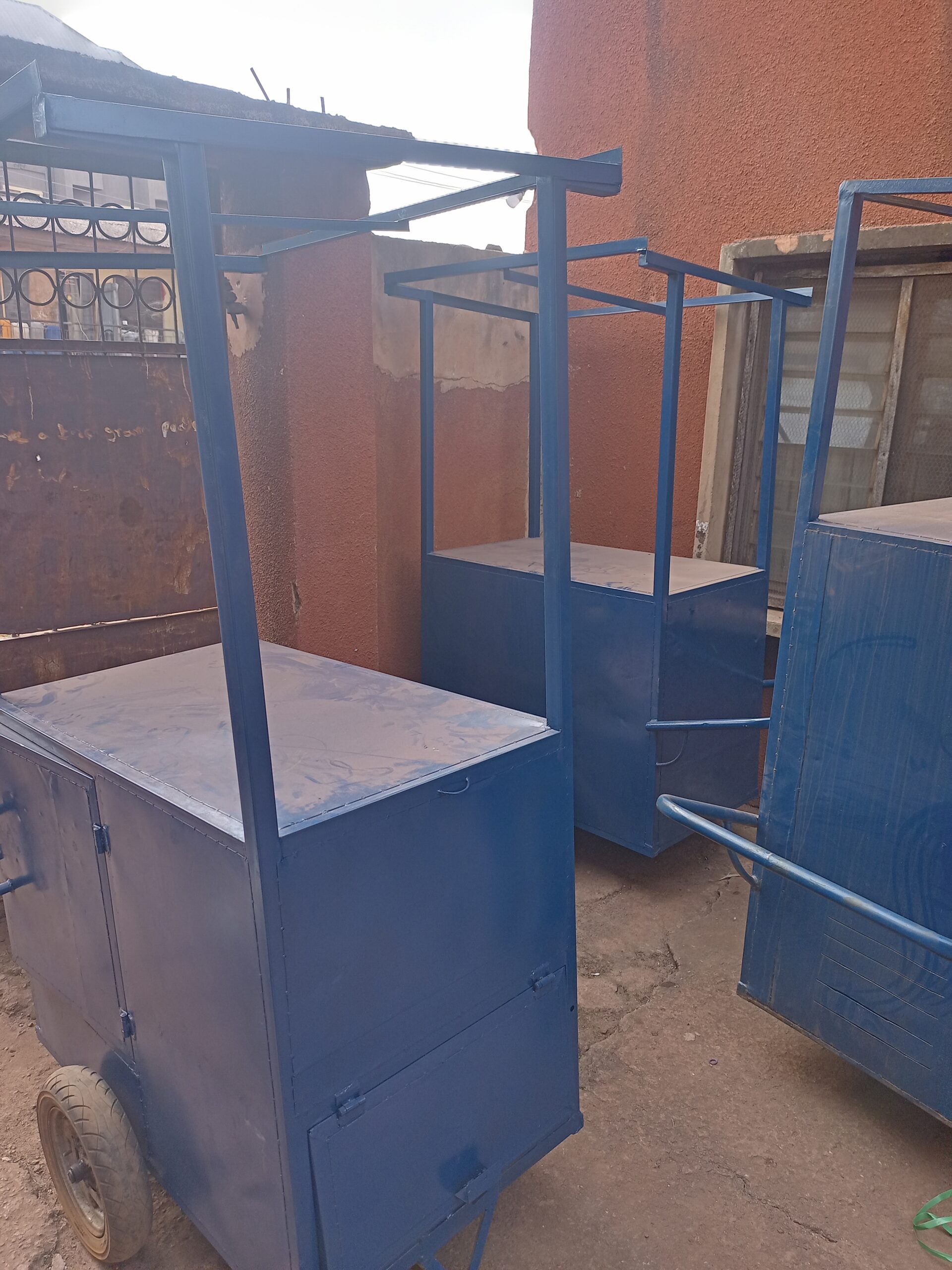Construction of a mobile phone and laptop charging station powered by solar for rural communities

Project Overview
This report details the construction and deployment of three solar-powered charging stations, one each for the rural communities of Amakaji, Amukwu, and Mgbowo. The project, sponsored by IEEE HAC and SIGHT 2023, aimed to alleviate communication challenges and enhance economic activities by providing accessible charging solutions for mobile phones and laptops.
Challenges Addressed
In many rural communities, access to reliable electricity is limited, hindering communication and economic opportunities. Individuals rely on expensive and often unreliable alternatives like generators for charging their devices.
This project directly addresses these issues by:
- Providing free and accessible phone and laptop charging: The solar-powered stations offer a clean and sustainable alternative, allowing community members to stay connected, access information, and engage in online activities.
- Promoting education and economic development: Improved access to communication tools fosters learning opportunities for students and facilitates business ventures for entrepreneurs.
- Enhancing sustainability: The use of solar energy reduces reliance on fossil fuels and promotes environmental responsibility.
Project Execution
The project involved the following key steps:
- Needs assessment and community engagement: Local stakeholders were involved in identifying suitable locations for the stations and ensuring community buy-in.
- Procuring materials: High-quality solar panels, batteries, charging cables, and other necessary components were procured.
- Station construction: Skilled technicians assembled the stations following established safety and efficiency protocols.
- Installation and training: The stations were installed in central locations within each community, and training sessions were conducted to educate residents on proper usage and maintenance.
Impact and Benefits
The project has demonstrably impacted the lives of community members:
- Over 300 individuals per community: Residents, including students, are now able to charge their devices at the stations, significantly improving communication and access to information.
- Enhanced learning opportunities: Students can use the stations to complete assignments, participate in online learning platforms, and conduct research.
- Economic empowerment: Improved access to communication tools facilitates entrepreneurship, business communication, and online marketing, fostering economic activity within the communities.
- Environmental sustainability: The use of solar energy reduces reliance on fossil fuels and promotes environmental responsibility within the communities.
Conclusion and Future Outlook
The successful implementation of these solar-powered charging stations demonstrates the positive impact of sustainable technology in bridging the digital divide in rural communities. By addressing communication challenges and fostering economic opportunities, the project contributes to the overall well-being and development of the targeted communities.
